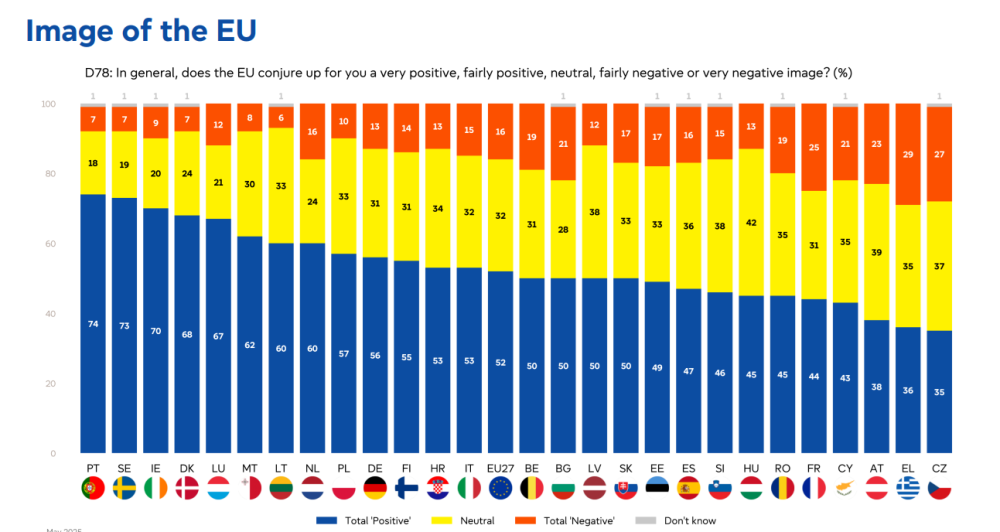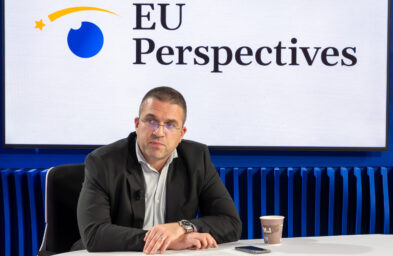The EU is perceived as a place of stability in the eyes of its citizens and approval of EU membership has reached its highest values in 2025, fresh Eurobarometer survey finds. Europeans put the focus on security, defence, economic performance, peace, and democracy. The majority of respondents call for more unity among member states.
The majority of Europeans think the EU should play a greater part in protecting its citizens against global crises and security risks (68%). Nine out of ten European citizens call for EU member states to be more united (90%) and over three quarters believe that the EU needs more means to face the current global challenges (77%). These are among the key findings of latest Eurobarometer survey published on Wednesday, 3 September.
Economic situation a major concern
The European Union needs to focus on defence and security (37%) and on competitiveness, economy and industry (32%) to reinforce its position in the world and address the current political and economic context, according to the survey.
Economic issues are also of great importance to EU citizens, the survey found. When asked about the priorities the European Parliament should focus on, rising prices and the cost of living come first (41%). The fight against poverty and social exclusion is important to about one third of EU citizens. Getting inflation and the cost of living under control was already a key issue in the last European elections in June 2024 as other polls repeatedly showed.
In general, the European Union enjoys a rather positive attitude among its citizens—52% view it positively and 32% neutrally. Only 16% of people have a negative attitude towards the EU. However, significant differences between member states exist.
You might be interested
Image of the EU: From Portugal down to Czechia
Unsurprisingly, citizens of countries in Western and Northern Europe have the most positive attitude towards the EU. In Portugal and Sweden, as an example, three quarters of the population view the EU positively, and negative attitudes towards the Union are marginal in these countries (six and seven per cent, respectively).
On the end of the scale, Czechia is the most skeptical country, with only 35 per cent of the population having a purely positive view of the EU. Twenty-seven per cent of Czechs perceive the EU negatively. In Greece and Austria is the perception of the EU rather similar, i.e., not very positive.

Among the European Union’s heavyweights, the most pro-European are the inhabitants of Germany. On the contrary, the French remain relatively skeptical.
Over 26,000 interviews face-to-face
The Eurobarometer survey was carried out by Verian research agency from 5 to 29 May 2025 in all 27 EU member states. The survey was conducted face-to-face, with video interviews used additionally in some member states (Denmark, Malta, Netherlands, Finland, and Sweden).
A total of 26 410 interviews were conducted. The EU-wide results were weighted according to the size of the population in each country.











